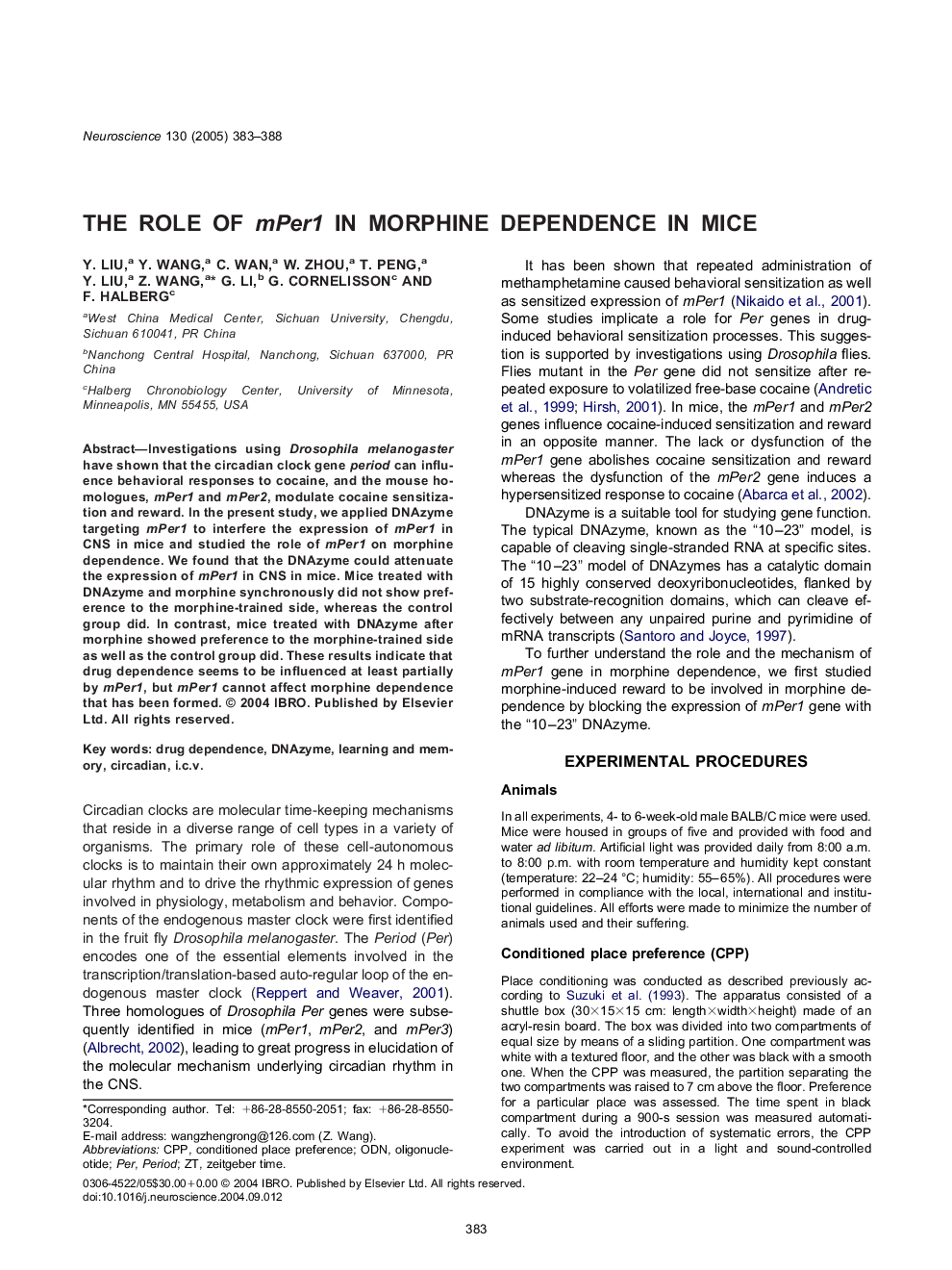| Article ID | Journal | Published Year | Pages | File Type |
|---|---|---|---|---|
| 9425802 | Neuroscience | 2005 | 6 Pages |
Abstract
Investigations using Drosophila melanogaster have shown that the circadian clock gene period can influence behavioral responses to cocaine, and the mouse homologues, mPer1 and mPer2, modulate cocaine sensitization and reward. In the present study, we applied DNAzyme targeting mPer1 to interfere the expression of mPer1 in CNS in mice and studied the role of mPer1 on morphine dependence. We found that the DNAzyme could attenuate the expression of mPer1 in CNS in mice. Mice treated with DNAzyme and morphine synchronously did not show preference to the morphine-trained side, whereas the control group did. In contrast, mice treated with DNAzyme after morphine showed preference to the morphine-trained side as well as the control group did. These results indicate that drug dependence seems to be influenced at least partially by mPer1, but mPer1 cannot affect morphine dependence that has been formed.
Keywords
Related Topics
Life Sciences
Neuroscience
Neuroscience (General)
Authors
Y. Liu, Y. Wang, C. Wan, W. Zhou, T. Peng, Y. Liu, Z. Wang, G. Li, G. Cornelisson, F. Halberg,
